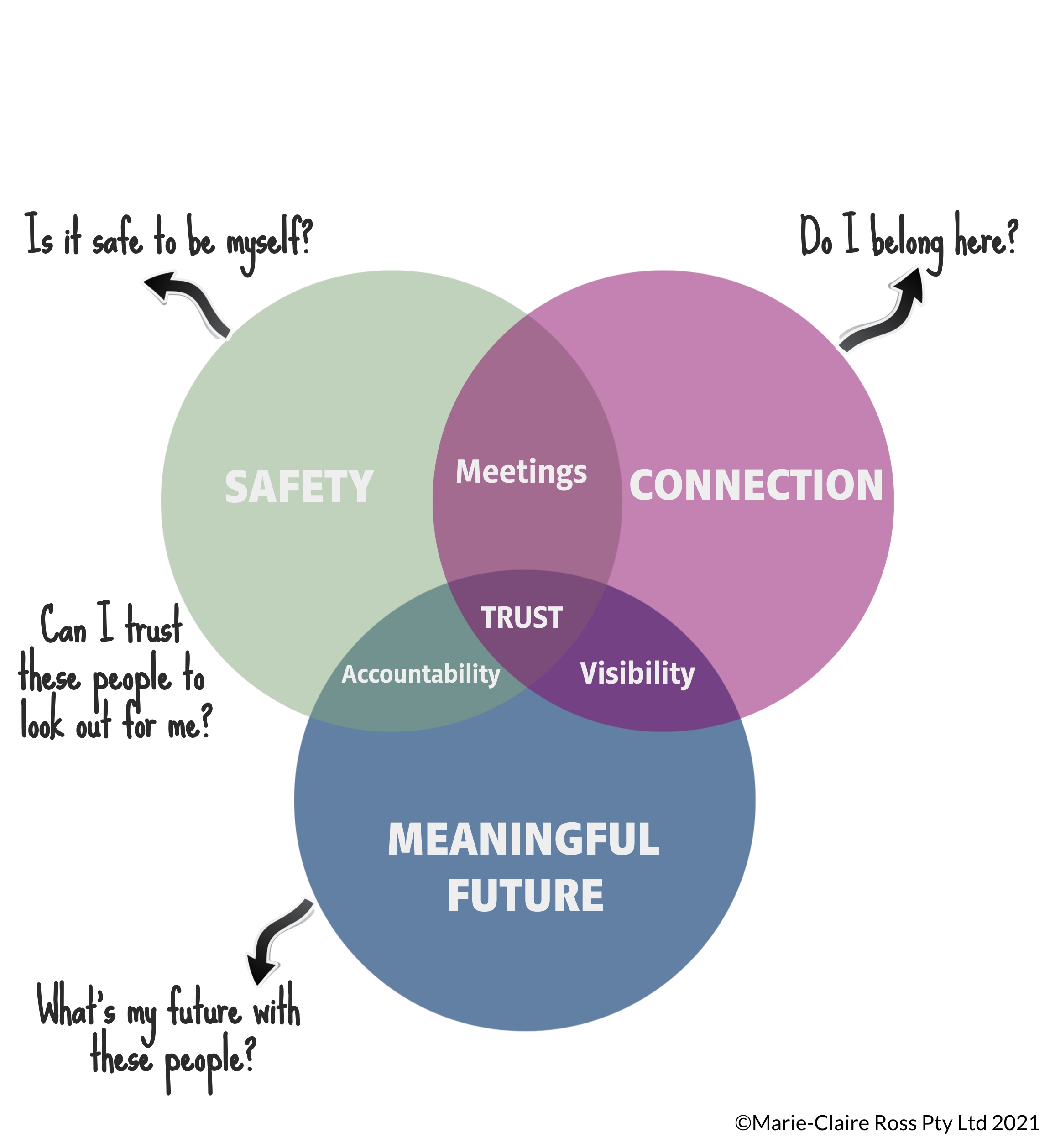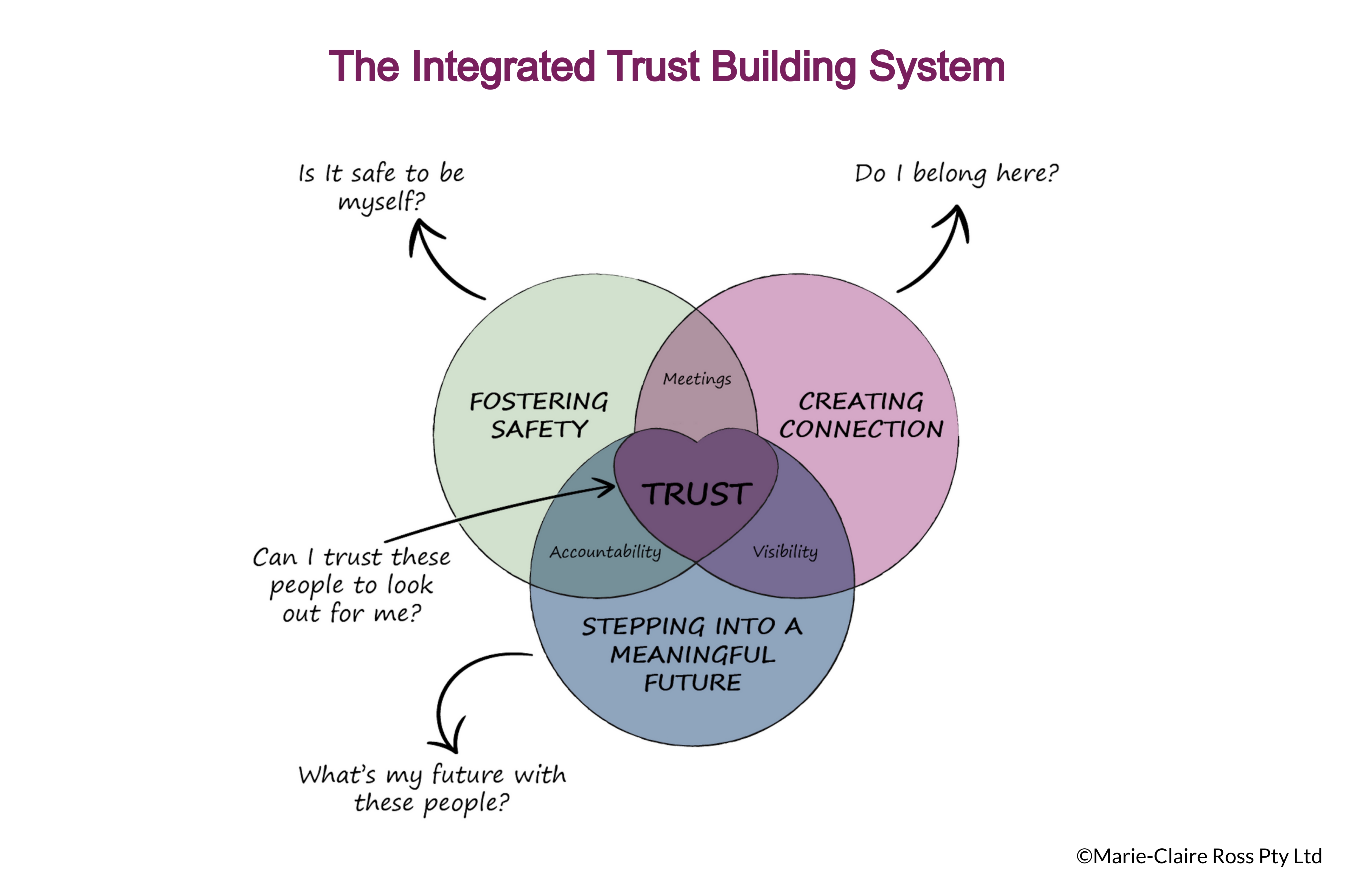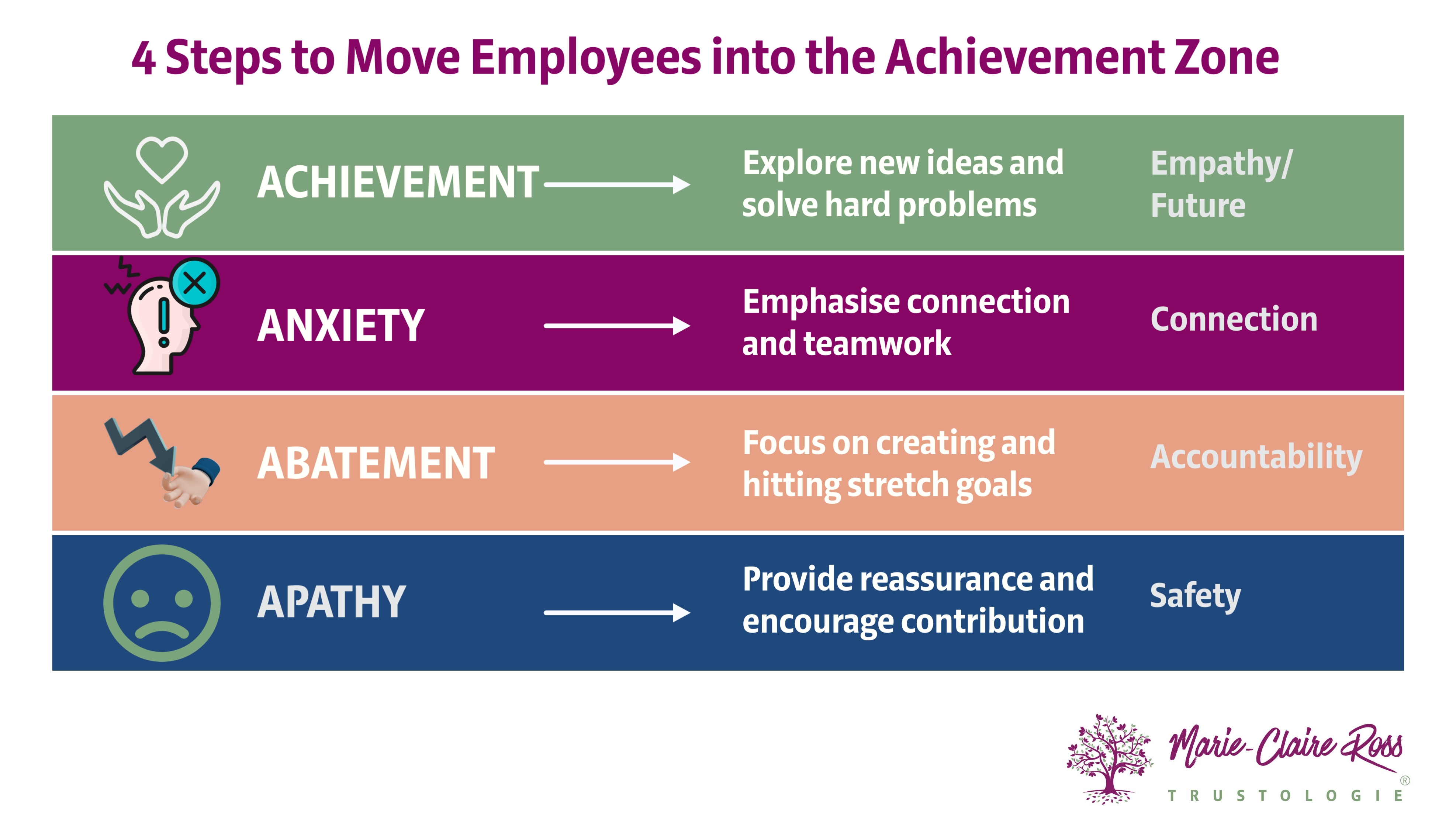11 min read
4 Practical Strategies for Better Emotional Management in the Workplace
I have a friend who often finds herself at the mercy of her emotions. Recently, she called me to rehash a confrontation she’d had with a group of...
Develop leaders, strengthen executive teams and gain deep insights with assessments designed to accelerate trust and performance.

Transform how your leaders think and perform with keynotes that spark connection, trust and high-performance cultures.

Explore practical tools, thought-leadership and resources to help you build trusted, high-performing teams.

Trustologie® is a leadership development consultancy founded by Marie-Claire Ross, specialising in helping executives and managers build high-trust, high-performing teams.

5 min read
Marie-Claire Ross : Updated on March 12, 2024

Congratulations!
If you are like a lot of people right now, you might have recently accepted a new job, received a promotion or you're actively looking for one.
In my coaching practice, I help a lot of emerging and current leaders start a new contract or job right. Often, they have made mistakes before when they have started a new role and want to ensure they don't stuff up their new opportunity.
What I'm finding recently is that a lot of people have stepped into new roles that are stretching them. They might have to lead a bigger team than they are used to, or have to work directly with, or within, the executive or have a new range of stakeholders to influence.
And it can be a little bit overwhelming and scary. So many people in these situations feel that they don't have enough leadership training and that their communication skills aren't strong enough to build trust with others. It negatively impacts their confidence in how they relate, communicate and work with others. Definitely not a trap you want to fall into when you start a new role!
So I want to take you through the Integrated Trust Building System that is from my book, Trusted to Thrive (get a free chapter here). It's a system that answers the questions people subconsciously ask themselves when we meet new people or work in a team: Is it safe to be myself? Do I belong here? What’s my future with these people? Can I trust these people to look out for me?

The Integrated Trust Building System comprises three main factors that we need to communicate to others, both verbally and non-verbally. These being safety, connection and a meaningful future.
We process whether we can trust someone through our emotions. We don’t trust others by what they say, it’s how they make us feel. It’s their consistent actions that show that they care about our well-being that determine whether we feel we can or cannot trust them.
The part of the brain that process our emotions (such as trust and loyalty) has no capacity to understand language. That’s why it’s so difficult for us to put our feelings into words, particularly about a decision we’ve made or why we trust someone.
It’s also why you can’t tell people to trust you. A lot of people fall into the trap that you can fix trust issues by just telling people they need to trust more or telling them to trust you more. Leaders will tell their team “you can trust me on this” or my favourite “everyone tells me that I am trustworthy, you can trust me, too.” If you have been on the planet for more than decade, those statements might make you feel queasy. And for good reason.
You can’t talk your way into trust; you have to behave your way into it.
To more effectively build trust in the workplace, you have to emotionally engage people through communicating - safety, connection and meaningful future. You do this in your in meetings (one-on-ones), through being visible and accountable. These are the critical times when people are judging your behaviours to evaluate whether they can trust you.
Each of these three interactions provide important opportunities for two-way feedback ensuring that you are able to finesse what people need from you and what you need from them. It starts with the perspective of how you can be of service to others. After all, we are more likely to trust people if they care about us.
Let me take you through how this works:
These three trust communication practices (safety, connection, meaningful future) are what you need to regularly communicate to those around you, in order to help them feel that you are someone they want to collaborate with. Likewise, if you are leading a team, you also need to be communicating these messages to your people as well.
While there are three corresponding interactions - meetings, visibility and accountability where you practise these emotionally resonant communication techniques.
4. One-on-Ones (meetings)
Trust is enabled through communication. If possible, schedule one-one-one time with as many people as you can in the first two weeks of starting a new role. Have open and fun two-way dialogue to really get to know people and what they need from you. The more people you know in your team and across the business, the better it will be for you to deliver to the right standard.
An example of a question to ask one-on-one is "Earning your trust and confidence is important to me. I’d like to hear from you what I can do to increase your confidence in me (connection/safety)."
A helpful formula is to State your Intention and ask a question related to:Here's another example: It's important to me that I am clear on what I need to do, so I don't let you down. What are your expectations on what success looks like for this task? (safety/future)
The more time you spend with people, the faster you will get to know each other - so that there are fewer misinterpretations in communication. Get it right and they will start to believe that you are acting in their best interests. It means you can still disagree, but have more productive conflicts as opposed to them worrying about whether you're trying to undermine them.
Don't miss this important step - it's critical for building trust in the workplace.
5. Visibility
Make sure you are easily accessible and people can see what work you are doing. Of course, this is most important if you are working from home.
Hopefully, your new company has set you up for success and has provided you with the ability to use some type of project management software. Enabling everyone to see what everyone is working on and their progress. If you don't have that, make sure you check in with your boss weekly, to share progress and update your team in meetings.
Make an effort to attend all meetings - especially in the office.
6. Accountability
Being accountable is critical to building trust. People will judge your effectiveness on the job by your capabilities. You have to get work done well and be accountable. That means fix mistakes, apologise if you do the wrong thing and constantly keep improving what you're doing. Make sure you ask questions if you are unclear on what to do. Making excuses, blaming others or ignoring deadlines will ensure you lose your job pretty quickly. And if you are leading a team, you also have to make them accountable.
There are no shortcuts to building trust. You have to do the work. The way to speed it up is to focus on demonstrating to people that "we're all in this together."
Remember, this is not judged through our words but through our behaviours and interactions with others. Taking the time to listen to others, show interest in them and following up your words with action is important. Get these right and you will find starting a new job is not only easier, but you'll form closer bonds with people.
Did you know that I have a 12-month Leadership Development program for high performers? Enrolment is open. You can learn more here.

11 min read
I have a friend who often finds herself at the mercy of her emotions. Recently, she called me to rehash a confrontation she’d had with a group of...

9 min read
True leadership presence isn’t a performance or a set of charisma hacks; it is the felt experience of who you are being in the room. By cultivating...

13 min read
As teams return from their summer (or winter) break, you may notice subtle shifts in your team’s energy. Even if the end of year was positive, a new...

Measuring and improving employee engagement is often revered as the holy grail to improving business performance. Moderate employee engagement...

Thousands of years ago, when humans roamed the African savannah, it was in our best interests to live in tribes. Being part of a tribe allowed us to...

In today's fast-paced world, the value of being busy is deeply ingrained in both our personal and professional lives. We often feel the need to...